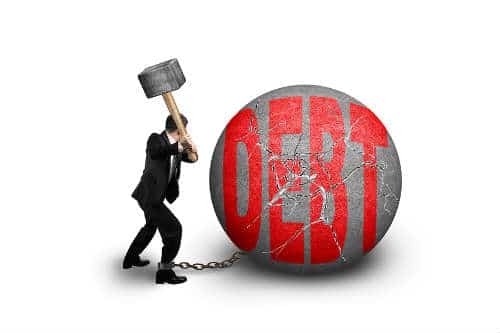Q: I am a 24-year-old graduate school student who accumulated a lot of credit card debt as an undergrad. About $7,000 of my credit card hasn’t been paid on since 2005. The other $3,000 or so hasn’t been paid in a year or two.
I am not in a position to pay these debts and I am seriously considering bankruptcy. What do you recommend in a situation such as mine?
A: I don’t have all the facts about your predicament, but bankruptcy likely is not the best option for you. Based on what you described, you have about as much debt as the typical U.S. household – around $10,000.
Normally, I wouldn’t suggest filing for bankruptcy protection with debts of just $10,000. But I recognize that all debt is relative. So being weighed down with $10,000 in debt in your early 20s may seem especially burdensome to you, particularly if you have a very small income, or if you have no job whatsoever.
You told me that you are a graduate student. But you didn’t say if you were in school full time and whether or not you work.
Not knowing this information makes it tougher for me to advise you on whether or not a bankruptcy filing truly makes sense.
Nevertheless, my gut instincts tell me that you should avoid bankruptcy based on several key facts that you did reveal.
First, you stated that the bulk of your debts – $7,000 worth – haven’t been paid on in about five years. These debts have undoubtedly been charged off by your previous creditors.
If they were charged off in, say, 2005 or in 2006, they’ll only be on your credit report for two or three more years — a far shorter time-period than a bankruptcy, which stays on your credit files for 10 years.
Also, the statute of limitations may soon expire on your credit card debts, or may have already expired, meaning that those previous creditors won’t be able to legally sue you in court or get a judgment against you.
Obviously, I don’t know what field you will enter or how long it will be before you obtain an advanced degree.
But the fact that you are currently earning a graduate degree also leaves me to believe that you will have above-average earning potential once you complete your studies.
If you choose to pay off those debts, or have to, in the future, you may have more cash flow than you currently enjoy.
Lastly, as a general matter, I often tell people contemplating bankruptcy to first answer two questions:
Have you exhausted all other options?
In other words, have you modified your budget, tried to negotiate with creditors, sought credit counseling help, considered a debt management plan, and so on?
Based on your current circumstances, can you realistically pay off your debts on your own in about 5 years or so?
If you’ve tried everything else and if it would be near-impossible to pay your debts over roughly 5 years, then bankruptcy is worth considering.
Only you know whether you’ve tried everything and whether $10,000 is feasible to pay off in 5 years.








